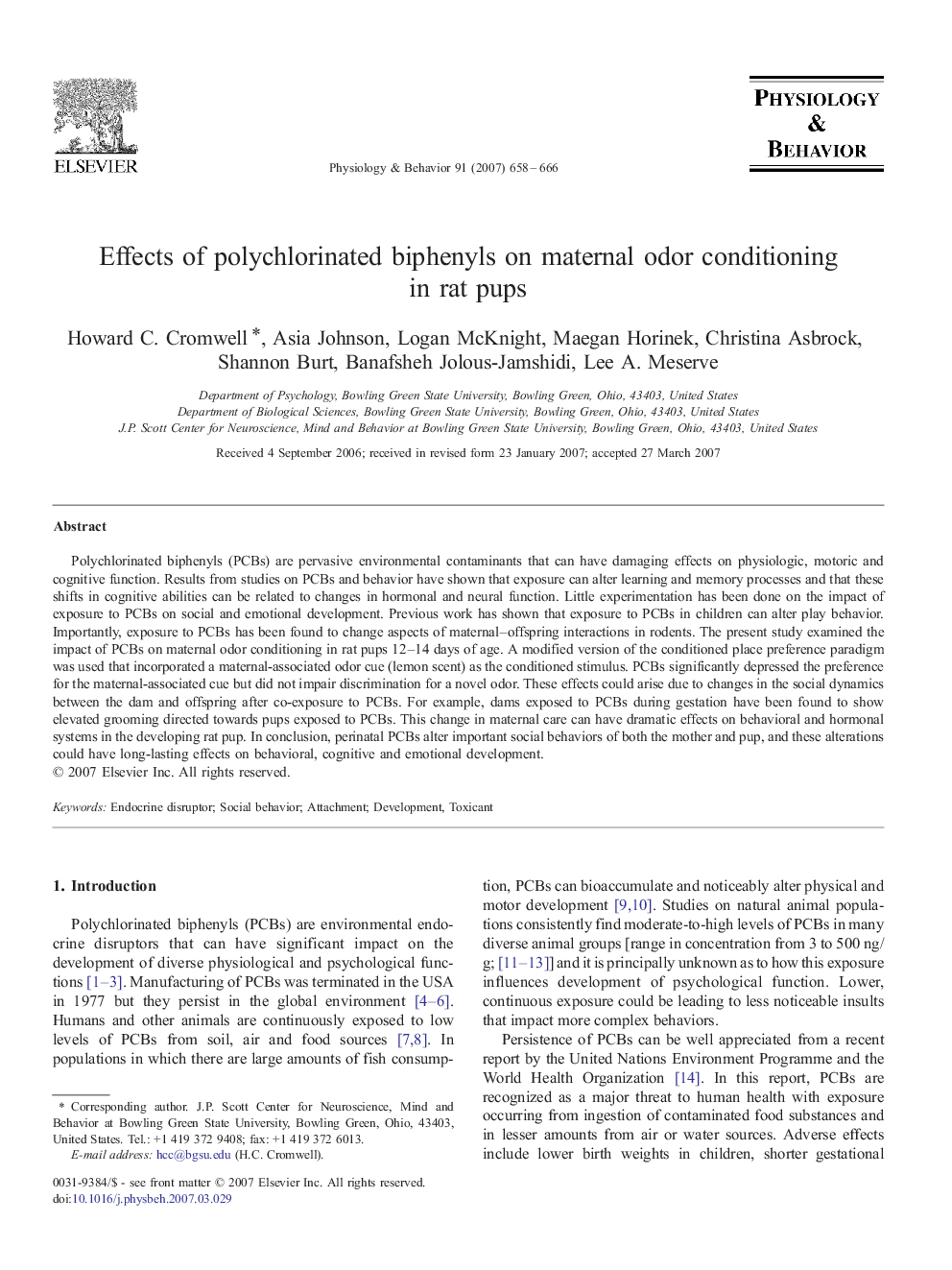| Article ID | Journal | Published Year | Pages | File Type |
|---|---|---|---|---|
| 2846086 | Physiology & Behavior | 2007 | 9 Pages |
Abstract
Polychlorinated biphenyls (PCBs) are pervasive environmental contaminants that can have damaging effects on physiologic, motoric and cognitive function. Results from studies on PCBs and behavior have shown that exposure can alter learning and memory processes and that these shifts in cognitive abilities can be related to changes in hormonal and neural function. Little experimentation has been done on the impact of exposure to PCBs on social and emotional development. Previous work has shown that exposure to PCBs in children can alter play behavior. Importantly, exposure to PCBs has been found to change aspects of maternal-offspring interactions in rodents. The present study examined the impact of PCBs on maternal odor conditioning in rat pups 12-14Â days of age. A modified version of the conditioned place preference paradigm was used that incorporated a maternal-associated odor cue (lemon scent) as the conditioned stimulus. PCBs significantly depressed the preference for the maternal-associated cue but did not impair discrimination for a novel odor. These effects could arise due to changes in the social dynamics between the dam and offspring after co-exposure to PCBs. For example, dams exposed to PCBs during gestation have been found to show elevated grooming directed towards pups exposed to PCBs. This change in maternal care can have dramatic effects on behavioral and hormonal systems in the developing rat pup. In conclusion, perinatal PCBs alter important social behaviors of both the mother and pup, and these alterations could have long-lasting effects on behavioral, cognitive and emotional development.
Related Topics
Life Sciences
Biochemistry, Genetics and Molecular Biology
Physiology
Authors
Howard C. Cromwell, Asia Johnson, Logan McKnight, Maegan Horinek, Christina Asbrock, Shannon Burt, Banafsheh Jolous-Jamshidi, Lee A. Meserve,
